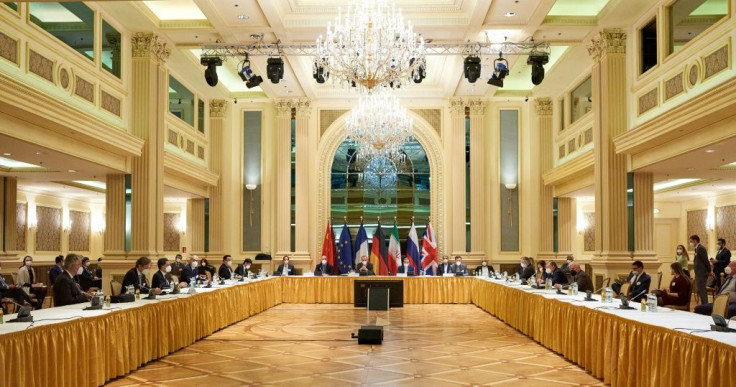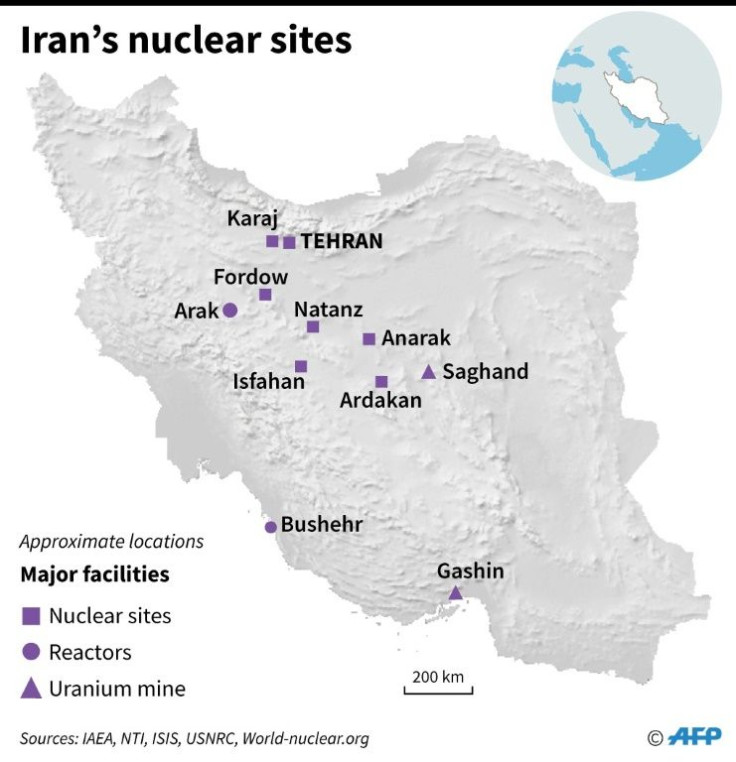New Life For Iran Nuclear Deal? Here's Where It Stands
The Iran nuclear deal -- thrown into disarray when the US left it in 2018 -- may get a second lifeline with US President Joe Biden saying he is ready to reverse his predecessor Donald Trump's decision.
Negotiators began meeting this week in Vienna on putting the 2015 deal, which aims to curtail Iran's nuclear programme in exchange for sanctions relief, back on track.
Delegates from countries still party to the deal -- Britain, China, France, Germany, Iran and Russia -- met Tuesday behind closed doors in the ballroom of a Vienna luxury hotel, as part of the so-called joint commission mandated by the pact.
This time a group of US delegates, led by special envoy Rob Malley, were on site in an adjacent hotel to indirectly take part in the talks, with European coordinator Enrique Mora shuttling between the venues.
Iran has refused to talk to the US directly while sanctions imposed and re-imposed by Trump are in place.
Both Washington and Tehran hailed Tuesday's talks as "constructive".

Two expert groups have been set up to look into the lifting of sanctions and nuclear issues. These experts are to report back to the delegates, with the next joint commission meeting on Friday.
Bilateral discussions are also taking place, with some of those participating posting photos and comments on Twitter.
"You have all the consultation formats you can imagine," a European diplomat familiar with the talks said, while another described them as "marathon" negotiations.
One of the working groups has been tasked "to examine the provisions of the JCPOA violated by Iran" and see how they can be reversed, one of the European diplomats said, using the initials of the deal's formal name (Joint Comprehensive Plan of Action).
"So far they're pretty positive," he told AFP, but the technically complex process has only just begun.
Iran, which has always said its nuclear programme is for peaceful purposes, began to break away from its commitments a year after the US withdrawal at a pace that has accelerated in recent months.

It confirmed in January it was enriching uranium to 20 percent purity, well beyond the threshold set by the deal of 3.67 percent, though below the 90 percent required for an atomic bomb.
Stocks have reached 55 kilogrammes (121 pounds), according to Iran's atomic energy agency.
In February, it announced it would start producing uranium metal, which can be used as a component in nuclear weapons.
It has also restricted inspections by the UN nuclear watchdog, the International Atomic Energy Agency (IAEA).
Upon exiting the agreement, Trump imposed sweeping sanctions including a US ban on any other country buying Iran's oil, a crucial export for the country.
Ahead of the talks, Malley suggested that the US could be open to lifting sanctions "that are inconsistent with the deal".
For now "the discussions at expert level are going well," one of the diplomats told AFP.
Many of the sanctions "were really applied just to make it more difficult" to restore the nuclear deal, according to Esfandyar Batmanghelidj of the European Council on Foreign Relations.
"The Biden administration is making it clear that the Trump administration's gambit won't tie their hands," he said.
Iranian President Hassan Rouhani said Wednesday "we'll be able to negotiate in a short time", but several diplomats have said they count on weeks.
"It's off to a good start but it can seize up at any time," one of the European diplomats told AFP, adding it was hard to say whether the talks can conclude before June 18, when Iran will vote for a successor to Rouhani, who is considered a moderate.
"If we have not managed by the first half of May to really give a decisive impetus, with clear progress, I will be worried about the will or the Iranian capacity to conclude this negotiation before the election," the other diplomat said, though he added it was not impossible to conclude talks even after the presidential vote.






